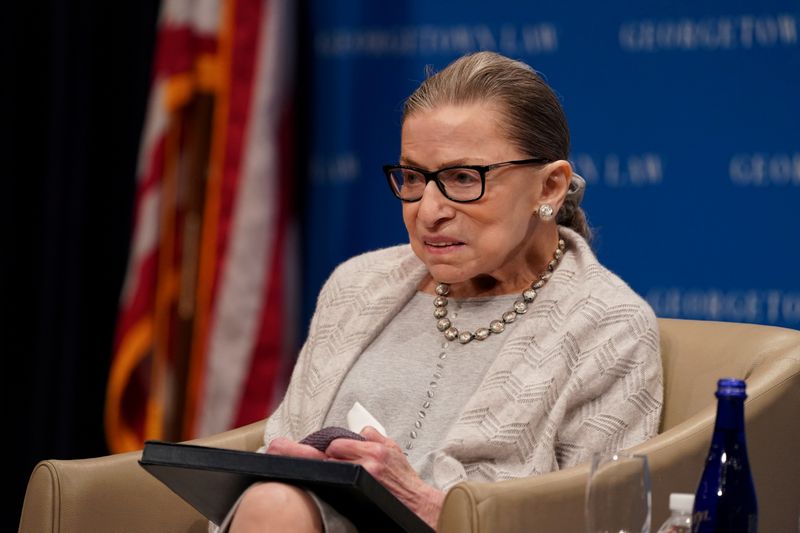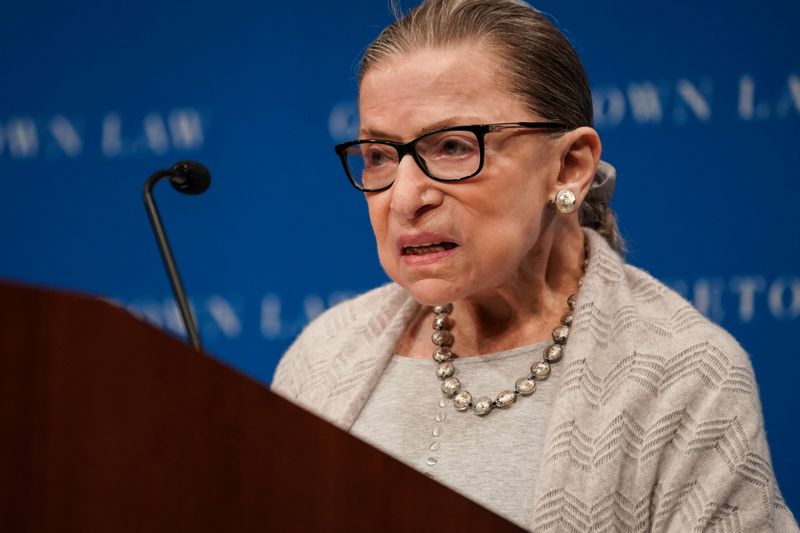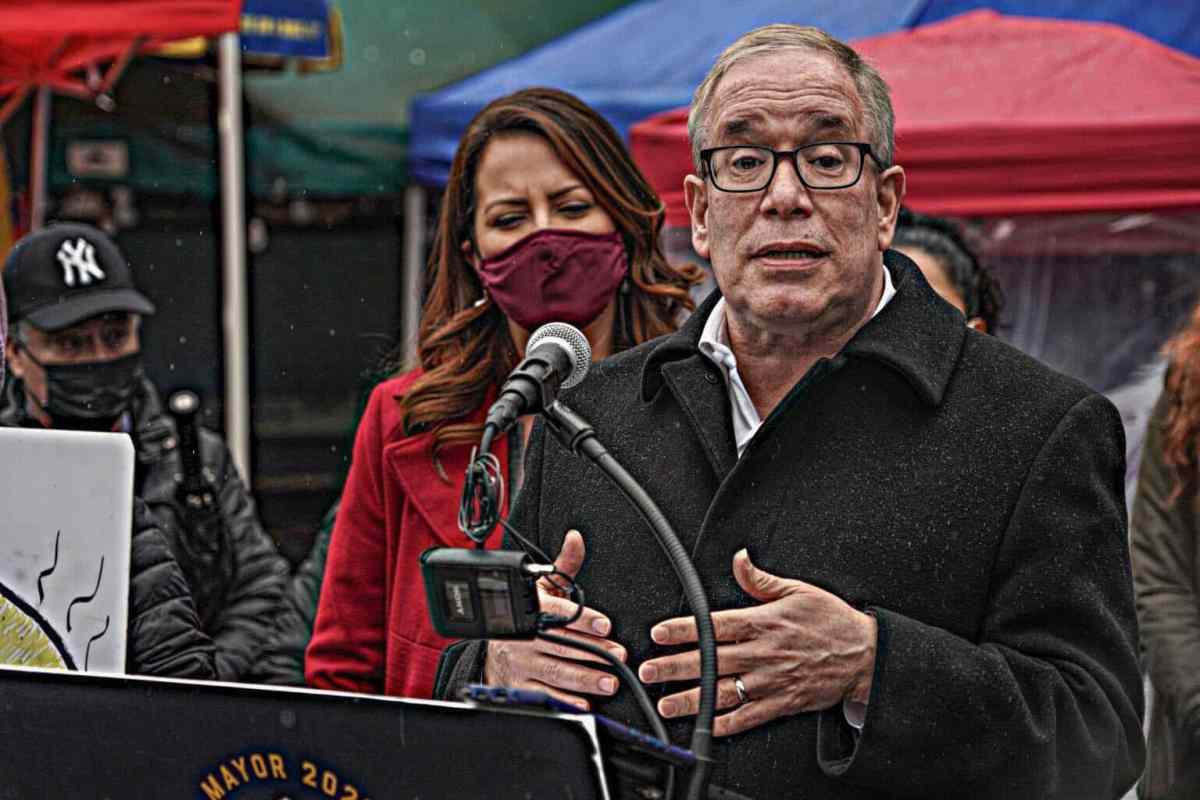WASHINGTON (Reuters) – U.S. Supreme Court Justice Ruth Bader Ginsburg, who has had a series of health scares, underwent non-surgical treatment for a gallbladder condition on Tuesday and was resting comfortably, a court spokeswoman said.
Ginsburg, 87, had a gallstone that had caused an infection and was treated at Johns Hopkins Hospital in Baltimore, spokeswoman Kathy Arberg said in a statement. Ginsburg is expected to participate in the court’s oral arguments on Wednesday remotely from the hospital.
Tests following the court’s oral arguments on Monday morning showed that Ginsburg was suffering from a gallstone that had migrated to her cystic duct, a tube that empties the gall bladder, blocking it and causing an infection, Arberg said.
Ginsburg is expected to stay in the hospital for a day or two, she said.
The court’s oldest justice has had a host of health issues in recent years.
In November 2018, she broke three ribs in a fall. Subsequent medical tests led to treatment for lung cancer that caused her to miss oral arguments in January 2019. She returned to the bench, but said in August that she had received radiation therapy to treat pancreatic cancer.
Most recently, Ginsburg was admitted to a hospital in November for two nights suffering from a fever and chills, but returned to work at the court the day after being released.
The health of the liberal justice is closely watched because a Supreme Court vacancy would give Republican President Donald Trump the opportunity to appoint a third justice to the nine-member court and prod it further to the right. The court currently has a 5-4 conservative majority.
The Supreme Court this week has been hearing oral arguments by teleconference for the first time in its history in response to health concerns raised by the coronavirus pandemic.
(Reporting by Lawrence Hurley; Additional reporting by Andrew Chung; Editing by Kim Coghill)
























